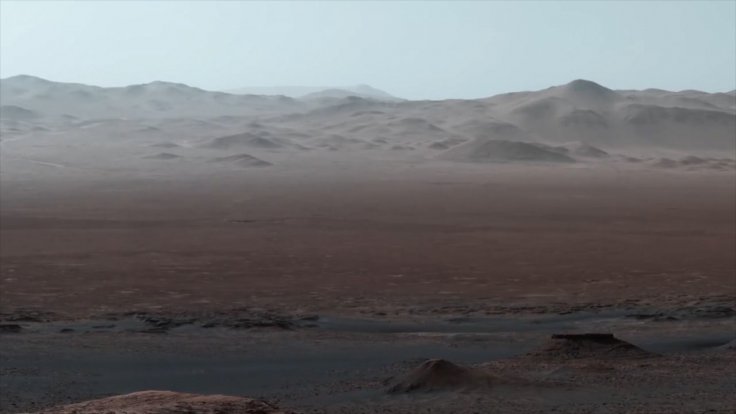
A new study has revealed that the underground in ancient Mars had the right conditions to support alien life. Led by Jesse Tarnas, a graduate student at Brown University, the study suggests that Mars in the ancient days had sufficient source of chemical energy required for microbes to thrive underground.
As per the study report, conditions in ancient Mars were very much similar to places on earth where underground life exists.
"We showed, based on basic physics and chemistry calculations, that the ancient Martian subsurface likely had enough dissolved hydrogen to power a global subsurface biosphere. Conditions in this habitable zone would have been similar to places on Earth where underground life exists," said Tamas, lead author of the study.
In earth, microbes live underground in a habitat named subsurface lithotrophic microbial ecosystems. As this subsurface ecosystem finds it difficult to obtain energy from sunlight, organisms living here usually obtain energy by peeling electrons off of molecules in their surrounding environments. Dissolved molecular hydrogen is a great electron donor, and it is primarily responsible for fueling life in earth's underground.
Researchers suggest that the subsurface region in ancient Mars might have plenty of hydrogen. As per researchers, a process called Radiolysis which breaks water molecules into hydrogen and oxygen is responsible for the creation of hydrogen in the subsurface regions of Mars.
"People have a conception that a cold early Mars climate is bad for life, but what we show is that there's actually more chemical energy for life underground in a cold climate. That is something we think could change people's perception of the relationship between climate and past life on Mars," added Tarnas.
Even though researchers could not assure that Mars was once home to alien life, they strongly believe that the red planet had the right conditions to sustain life during the ancient times.
A few months ago, a team of Italian scientists claimed to have found the evidence of water on Mars. These scientists who work with the European Space Agency in the Mars Express mission revealed that a 12-mile wide underground liquid pool was detected by radar measurements near the Martian South Pole. Experts believe that NASA's upcoming Mars mission will resolve two age-old question--Did the red planet once supported life? If life was there, what caused its extinction?
The study was published in the journal Earth and Planetary Science Letters.









